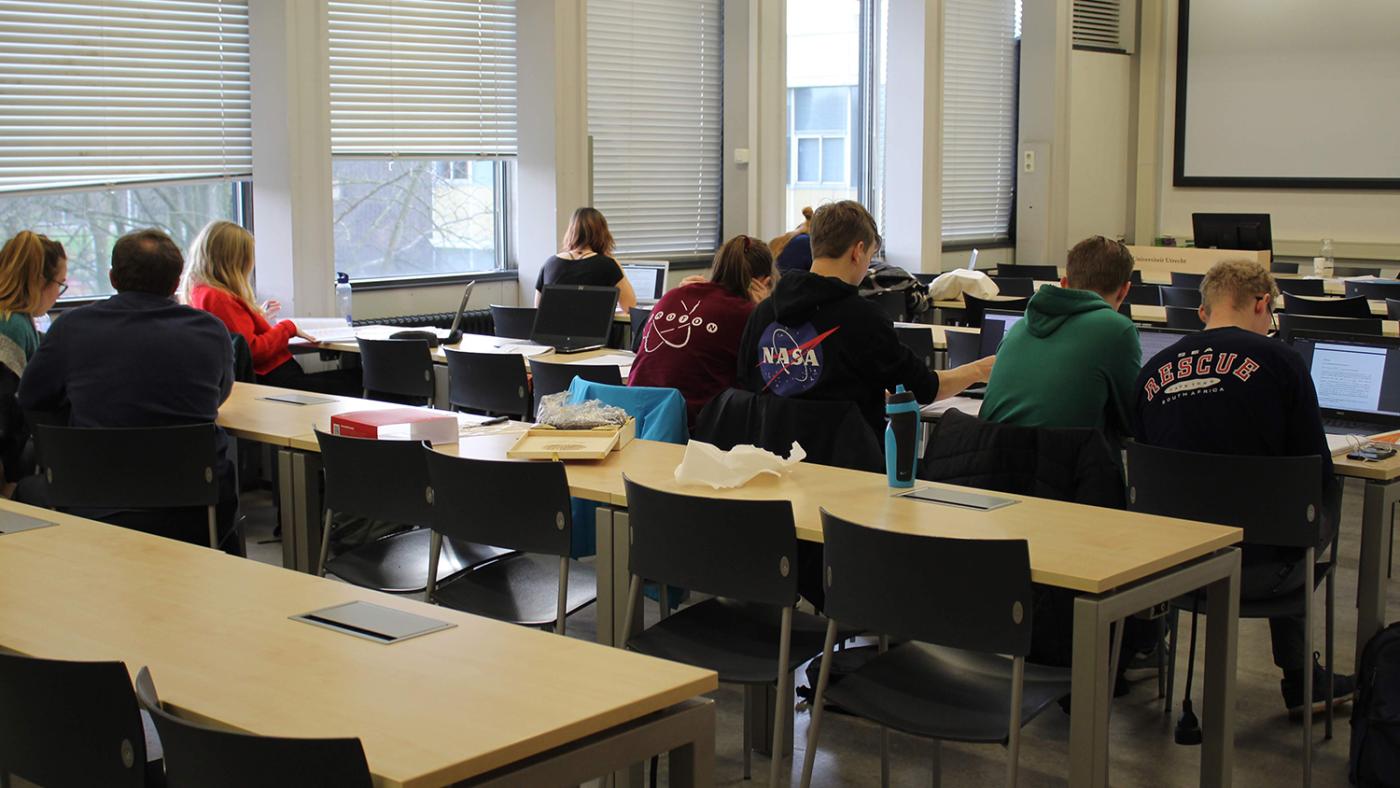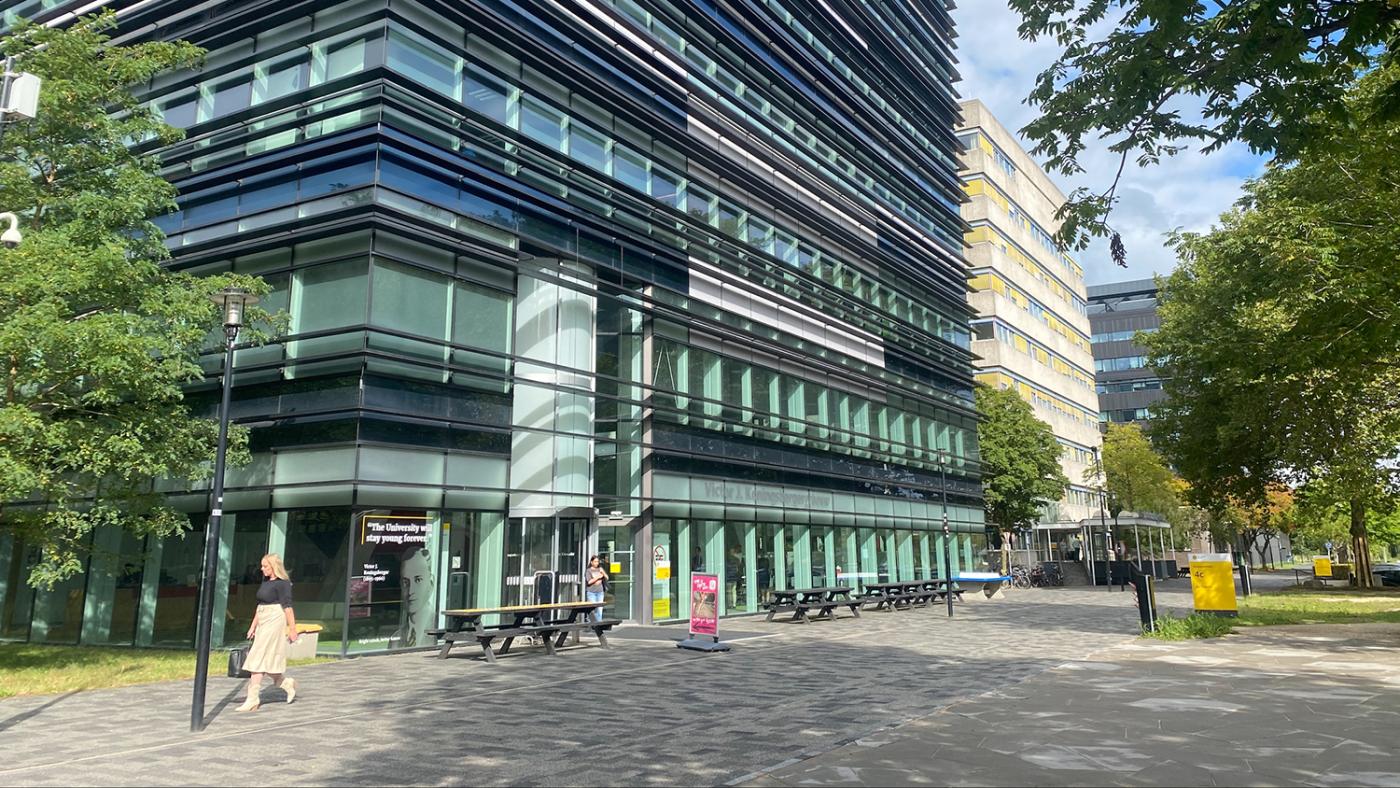Changing the culture
Faculty of Science will have fewer weeks of teaching

The lack of time to rest during the academic year is the primary factor contributing to the work pressure experienced by lecturers and students in the Faculty of Science. This has been evidenced by the first phase of Rest & Space, a faculty project that was launched last September.
In mid-2024, a project group was tasked with investigating ways to reduce the workload for lecturers and students, as surveys had repeatedly shown that workload was a problem at the faculty. Shortly before the summer of 2025, the project group issued its first report. The document analyses the main factors that cause studies and/or work to become too burdensome.
Based on thirty interviews, the project group concluded that the annual schedule is particularly problematic for lecturers.
Too intensive
Almost all programmes have the tendency to completely fill the four ten-week blocks with teaching activities. As a result, lecturers are left with very little time to reflect, work ahead, or simply go on holiday. The transition periods are particularly difficult for them, as they must grade tests while preparing the next block.
Students also complain about the rigid structure, which has no room for breaks. According to them, this reduces their motivation and leads to mental fatigue. Many students also struggle to catch up after experiencing study delays, which exacerbates their feelings of stress.
Students find the last weeks of each period particularly intense, as they often have to deal with overlapping deadlines for tests and assignments. In the Chemistry department, for example, it is not uncommon for students to have to meet around fourteen deadlines within a seven-week period. Some Chemistry students describe their programme as “relentless”, according to the project team's report. Computer Science students say the same.
Previous surveys of students have yielded similar findings. For example, an initial student wellbeing monitor conducted in the 2023-2024 academic year showed that one-third of students enrolled in the Faculty of Science reported high levels of unhealthy stress. That survey also identified the lack of rest weeks and the difficulty of planning their studies as problematic factors.
Cultural change
Reacting to the project group's findings, the faculty board has decided to investigate scenarios in which programmes would no longer offer ten weeks of teaching. According to Vice-Dean Bert Klein Gebbink, this is no small task. No decisions have been made yet.
‘This really requires a cultural change. Most programmes have become accustomed to using all ten weeks. We must avoid a situation where students are offered the same amount of material in less time, of course. That would take us even further away from our goal.’
In the next phase, the project group has been tasked by the faculty board with investigating how programmes can ensure that nine weeks of teaching are provided. Previous proposals to reduce the teaching schedule to eight weeks were deemed unrealistic.
In addition, the group must come up with proposals for ways in which programmes can ensure a better distribution of tests and assignments, which could perhaps lead to fewer tests being given.
The chair of the project team, Associate Professor Tom Wennekes, acknowledges that the faculty will have to break with a “culture of overcommitment”. Wennekes: “Many lecturers struggle with the idea that students can master abstract material in less time.”
However, Wennekes is hopeful, based on the conversations he has had so far. “We have noticed that everyone understands the need for change and they are open to discussing solutions.”

Several scenarios
By the end of the year, Wennekes aims to present the project team with several scenarios on how programmes could incorporate periods of rest for lecturers and students into their teaching terms. They intend for programmes to review these scenarios in the spring of 2026 and for the scenarios to be implemented as of the 2027-2028 academic year.
Wennekes: "Our programmes are so different that there does not seem to be a one-size-fits-all solution. We could say we will just finish two weeks earlier and then close the buildings, but then some programmes would have problems scheduling the limited practical facilities. Each programme will have to make its own choices."
Wennekes acknowledges that this illustrates the complexity of the issue. Students who take courses in two different programmes will probably not be able to get a guarantee that they will have a week off during the exam period.
Nevertheless, Wennekes is convinced that fewer teaching weeks, combined with a more balanced distribution of tests and assignments, can lead to a reduction in workload and stress. "We really need to make sure we don't take on too much. Most people are aware of that now."
The interviews conducted by the project group at the Faculty of Science revealed several other factors that lead to high workloads, according to students and lecturers. As it turns out, the annual schedule, the exam planning, and the culture of overcommitment are not the only contributing factors.
For example, lecturers also complain about the fragmentation of tasks, which means that their attention must be divided among teaching, research, and administrative tasks. As for students, they report that finding an internship and a supervisor are stress-inducing activities.
The faculty board states that it intends to thoroughly examine these additional factors. However, this will not happen as part of the Peace & Space project, as it is funded by resources made available to Utrecht University by the Ministry of Education, Culture and Science to investigate whether changes to the academic calendar can lead to a reduction in workload.
The Minister of Education, Culture, and Science at the time, Robbert Dijkgraaf, decided to do this after the Young Academy demonstrated that Dutch scientists and students have a substantially higher educational workload compared to their international counterparts.
At the end of last month, the House of Representatives received an interim evaluation of all projects. UU reported on three projects. In addition to the project described in this article, the Biology programme had already conducted similar research into the workload, which led to a week without classes in the autumn. The Faculty of Humanities examined administrative tasks that consume a significant amount of time.
A university working group concluded that there is insufficient support for changing the academic calendar. The working group therefore suggested that faculties should plan fewer teaching weeks within the four blocks. Other faculties are already doing this. At the Faculty of Humanities, it is not uncommon for students to only have seven weeks of teaching.
Het is verkeerd om een artikel waarin “[k]euzes zijn nog niet gemaakt” wordt geschreven over de optie om “niet langer tien weken onderwijs [te] gaan geven” de titel “Bèta’s gaan minder weken college geven” te geven. Die titel moet anders.